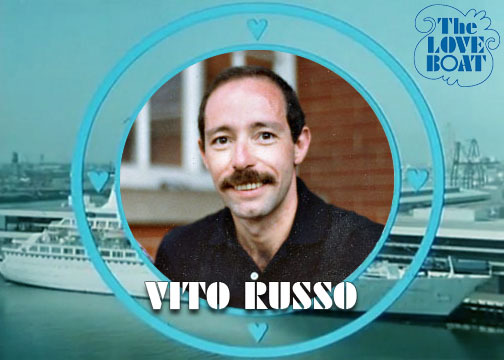#Vito Russo
Text
Hbomberguy did a pretty good job pointing out how Somerton has tried to take up the air of modern queer creators, stealing the works they made to little or no money or exposure, and using them to bolster his own fame. It's a truly reprehensible act.
But I feel like it's also important to briefly touch on what he stole from the past.
The Celluloid Closet is a backbone text on queerness and cinema. Like, if you're at all interested in the subject, please read the book, and watch the doc. Yes, the language will be outdated. It was written in 1981 and the doc published in 1995. Language evolves. I was fortunate enough to both read the book and see the documentary in the early 2000s, when I attended university.
It was written by Vito Russo, who held a Masters in film and a desire to fight for queer rights after witnessing the Stonewell riots. The Celluloid Closet was first a live lecture presentation, then a book. He would try to get the book made into a documentary in the early years, and after he died, others picked up that torch to carry on his work and to pay respect to the man.
Vito Russo was also one of the co-founders of GLAAD. He was a co-founder of ACT UP. You may have, if you've watched documentaries or seen news stories about the AIDS crisis, seen parts of his speech, Why We Fight. He protested, advocated, and educated even as people he knew and loved died, and he himself was dying.
As Hbomberguy notes in his doc, he would go on to pass in 1990. This was a man who fought his ass off, even while dying, for a better tomorrow and better representation.
The fact that Somerton stole his work is beyond insulting to the queer history, and queer film history, that he purports to give a shit about.
11K notes
·
View notes
Text
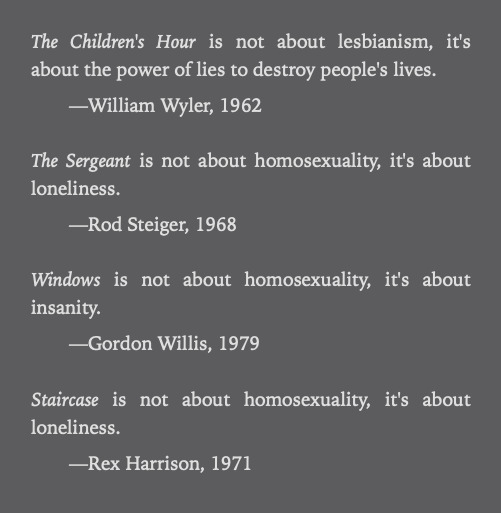

Vito Russo, The Celluloid Closet: Homosexuality in the Movies
591 notes
·
View notes
Text
"I visited Vito Russo at New York University Medical Center, he lay in bed with a Silence = Death button on his striped pajamas. He wanted to know everything that was happening out there in his beloved world. Others couldn't bear to think about what they were missing. When he died, the message on his answering machine said, 'This is Vito. I'm sorry I'm not here.'"
-Sarah Schulman, Gentrification of the Mind, 2012
96 notes
·
View notes
Text
sometimes the internet is still good — i checked out a copy of the celluloid closet from the library, and vito russo talks about this pro-gay movie funded by the hirschfeld institute and starring conrad veidt, and how it's been lost, and you know there's a copy on the internet archive for free? it's not the complete movie — that was apparently successfully destroyed by the nazis, or at least a complete version hasn't turned up yet — but it's more than was available when the book came out, and it's just… it's there. you can watch it. the nazis tried to destroy it and they failed and now you can watch it. it got censored so hard a year after it came out that you could only see it if you were a doctor or a lawyer and it's just free now. that's wonderful.
69 notes
·
View notes
Text
Haven't been following the James Somerton drama closely but it's become so ridiculous that it's funny
Is no one going to talk about the fact that he said that he thought it was okay for him to mention Vito Russo in the opening credits and then never mention him again because his book was out of print and Russo was dead....
And then in the same breath say that he was 'extending Russo's legacy' like my brother in Christ do you even hear yourself-
#hbomberguy#james somerton#vito russo#the celluloid closet#like lmao wtf#also the reason he plagiarized was because uh *clears throat*#he is ADHD and his mom had cancer and then she died and his father was grieving and he has epilepsy and memory issues and ajdjkdkskakskhdh#sorry my brain fizzled out#not saying thag life isn't harder because of all these things#BUT NONE OF THEM MADE YOU A SHITTY PERSON JAMES#THAT WAS ALL YOU. YOUR FAULT.#also apparently the other reason he took words from smaller queer creators was because people would listen to him as a cis white man#and not to them#fuck you james#hes so pathetic its funny#but then i remember how many people he has hurt#oh by the way edited versions of his videos are back up because nick should have his own portfolio#sure james sure#its all for nick
24 notes
·
View notes
Text
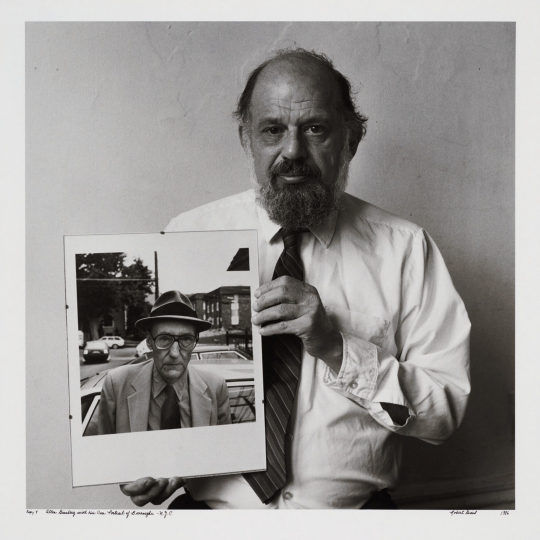



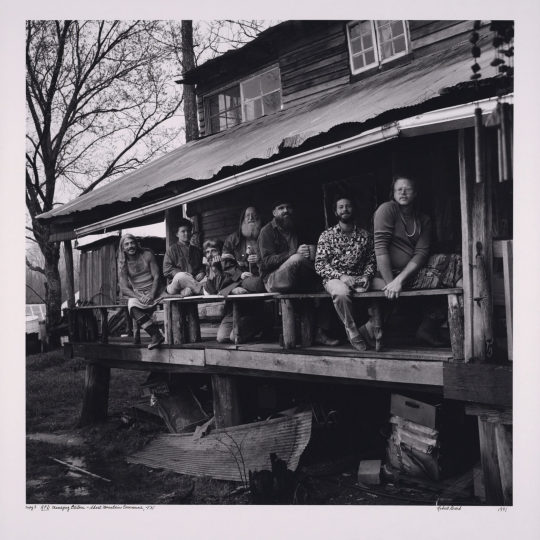
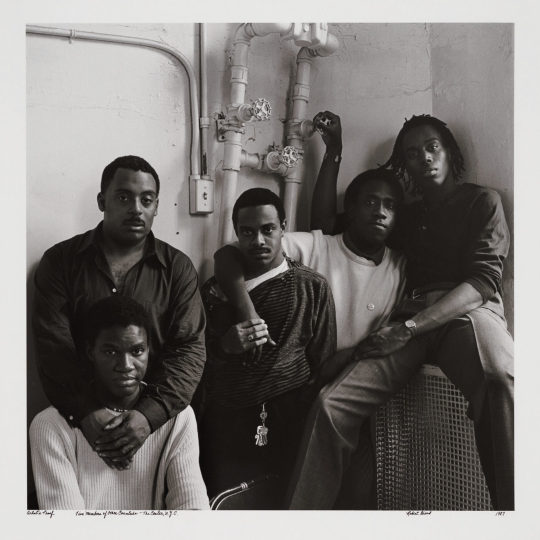
In 1985, after attending a performance of Larry Kramer’s The Normal Heart—one of the first dramas dealing with the impact of AIDS on gay life—Robert Giard decided to devote his energies as a photographer to some aspect of the gay and lesbian community. Thus was born his two-decade long project of photographing over 600 gay and lesbian writers—from famous playwrights to emerging novelists to unsung poets and pioneering performance artists. Particular Voices: Portraits of Gay & Lesbian Writers is an extraordinary visual record of the flowering of queer voices in the wake of the Stonewall Rebellion and the AIDS crises, while also paying homage to many earlier 20th Century activists and writers who had urged the creation of a community identity, or otherwise gave public voice to gay and lesbian sensibilities. Particular Voices is a unique record of a cultural moment in American letters.
Allen Ginsberg, with his own portrait of Burroughs, 1986/Alison Bechdel, 1995/Andrea Dworkin, 1992/Vito Russo, 1987/RFD Magazine Managing Editors, 1991/Five Members of "Other Countries", 1987
#queer photography#queer history#queer#queer artist#lgbt#queerness#queer writers#lgbt history#lgbt photography#lgbt pride#robert giard#allen ginsberg#alison bechdel#andrea dworkin#vito russo#other countries queer
109 notes
·
View notes
Photo
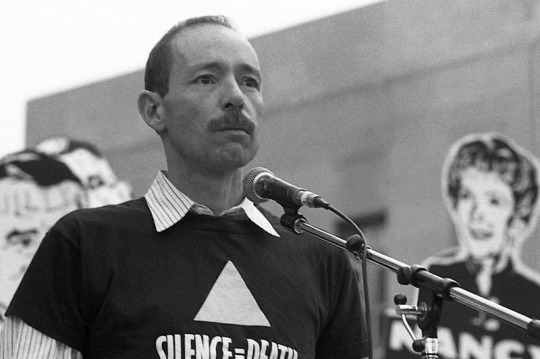
Vito Russo (deceased)
Gender: Male
Sexuality: Gay
DOB: 11 July 1946
RIP: 7 November 1990
Ethnicity: White - American
Occupation: Activist, film historian, writer
Note 1: GLAAD named the "Vito Russo test" after him, a set of criteria intended to analyze the representation of LGBT characters in films.
Note 2: Had HIV.
#Vito Russo#lgbt history#gay history#lgbt#lgbtq#male#gay#1946#rip#historical#white#american#activist#historian#writer#hiv
88 notes
·
View notes
Text

Vito Russo, The Celluloid Closet: Homosexuality in the Movies (Revised edition 1987, originally published 1981)
Text ID: You can't plead tolerance for gays by saying that they're just like everyone else. Tolerance is something we should extend to people who are not like everyone else.
#vito russo#the celluloid closet#cinema#prose#literature#quotes#quotations#book quotes#quote#homosexuality#tolerance
200 notes
·
View notes
Text















[id in alt text]
some of my favourite commentary from the afterward to vito russo's updated edition of the celluloid closet
#the celluloid closet#vito russo#queer stuff#film#described#the link leads to the full text on archive.org ! read it + watch the documentary#fully losing it over the entry for cat on a hot tin roof tbh#imperative that queer film crit remains as bitchy and catty yet well-observed as russo's was#vito baby we need your ghost to weigh in on the politics of cinematic queer assimilation + homonormativity#i want his one line summary of the power of the dog
31 notes
·
View notes
Text
working on vito russo's 'why we fight' speech and it's honestly one of the most powerful things i've read in the course of my work.
i think about the 'someday, the AIDS crisis will be over. remember that. and when that day comes -- when that day has come and gone, there'll be people alive on this earth -- gay people and straight people, men and women, black and white, who will hear the story that once there was a terrible disease in this country and all over the world, and that a brave group of people stood up and fought and, in some cases, gave their lives, so that other people might live and be free.' quote so fucking often because it's not and we lost so many (including vito) but i love the hope that it engenders.
4 notes
·
View notes
Text
As an afterthought to my previous thought, there's something, I don't know. Hypocritical? Ironic? One of those words about Somerton actively stealing Vito Russo's material while at the same time lamenting that the only gay people left after the peak of the AIDS crisis were the non-artist "boring" ones who weren't artists and were more interested in "marriage and military" than anything else.
My man, not only is that a gross oversimplification of the many fights for rights that 90s activists did, those fights, including marriage, were the after results of lessons learned and trauma earned due to the AIDS crisis.
Why were they fighting for marriage rights? Because too many of them didn't get to see their loved ones in their final moments, or have control over what happened to them after they died. Because they didn't have the rights Western cultures afford married couples.
They were the decimated survivors of a plague and social indifference to that plague (when society wasn't outright cheering the plague on) fighting to make sure what happened to them wouldn't happen to queer people in the future. Many had seen their loved ones die, or had AIDS themselves. Not like THAT went away.
You're just a fucking thief who stole from someone you claimed to respect, while diminishing the fights of people who were inspired by him and people like him. You're a plagiarist, and you certainly aren't an artist like Vito Russo.
Tell me, who is more boring?
394 notes
·
View notes
Link
Love horror? Please, take a moment and donate just $5.00 to fund the next great Queer Horror film!
#aids crisis#aids activism#hiv aids#larry kramer#angels in america#vito russo#film#cinema#indie#horror#scary movie#Queer Cinema#queer horror#new horror film#new queer cinema#tony kushner#filmmaking#horror movie#lgbt#lgbtq community
3 notes
·
View notes
Text
youtube
In the Life was a gay and lesbian variety show that first aired in 1992
#in the life#gay history#lesbian history#lily tomlin#vito russo#kate clinton#dick sargent#must find more episodes#there’s a vhs tape on ebay but it’s ridiculously expensive#anyway the theme song and accompanying animation is SO 90s
6 notes
·
View notes
Text
June 2022 Book Club Picks
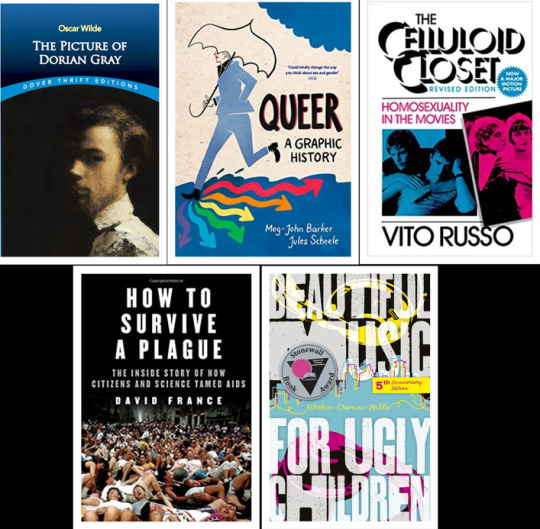
The Picture of Dorian Gray by Oscar Wilde: Dorian Gray is young, beautiful, and innocent - the perfect subject for portrait artist Basil Hallward to capture on the canvas. Basil’s acquaintance Lord Henry Wotton agrees, but laments the cruelty of Dorian losing his beauty and vitality to the ravages of age, while his portrait remains unchanged. Dorian, influenced by Lord Henry’s hedonistic worldview, utters a terrible wish - if only his portrait could age instead. As Dorian descends further into selfish sin, his portrait continues to twist, a hideous reflection of his crimes.
Queer: A Graphic History by Meg-John Baker: The relatively new field of queer theory can often seem vast and unapproachable to the uninitiated. Through this comprehensive and beautifully illustrated guide, scholar Meg-John Baker and cartoonist Julia Scheele aim to demystify the many tenants and schools of thought, from Kinsey and Butler’s early groundwork theories to more modern, inclusive takes.
The Celluloid Closet: Homosexuality in the Movies by Vito Russo: Traces the history and social implications of homosexuality portrayed on film, from the Pansy Craze and sissy characters of early film, to the various backlashes homosexuality in film has faced, to the multitude of censorship attempts to keep gay representation off the screen.
How to Survive a Plague: The Inside Story of How Citizens and Scientists Tames AIDS by David France: Part history, part social commentary, part memoir, and part political manifesto, David France minutely tracks the full course of the American AIDS epidemic, to the culture wars of the early years, to the fight for life in the later years. Heartbreaking in many place; you will bawl like a baby.
Beautiful Music for Ugly Children by Kristen Cronin-Mills: Gabe is like a record - he has an A side that everyone knows, and a B side, which isn’t as well known, but just as good. His A side is Elizabeth, assigned female at birth and part of a family that isn’t quite ready to accept the truth, that he’s a boy and always has been. But at night, on his radio show, Gabe lets his B side play free and loud. And when a once-in-a-lifetime opportunity comes along, Gabe has to choose whether he’s ready to let everyone hear his B side.
#book club#june 2022#the picture of dorian gray#oscar wilde#queer a graphic history#meg-john baker#the celluloid closet#vito russo#how to survive a plague#david france#beautiful music for ugly children#kristen cronin-mills
3 notes
·
View notes
Text
Q: Hank, admit it, you're a junkie yourself and are in no position to question Jordan Peterson
A: I'm a junkie of sorts but my drug is legal and not as bad as him
Q: Hank you should have energy to do more than watch movies in bed today
A: I know, I should
Q: Hank you should have bought sorbetto
A: Agreed
Q: Hank at least do a set of 60 pushups
A: I'll try, I'm so tired
0 notes
